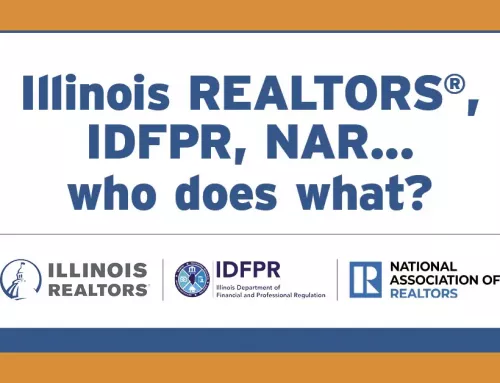
Vicky Silvano – broker with Century 21 SGR in Chicago – PHOTO BY ANN LONDRIGAN
REALTOR® Vicky Silvano says addressing fair housing issues means making sure you and your community are being seen and heard.
When Silvano served as national chair of the Asian Real Estate Association of America (AREAA) in 2016, the organization discovered Asian Americans/Pacific Islanders were not identified as a specific category in the U.S. Census Bureau’s quarterly homeownership reports. This group was just lumped into the “other” category, which prompted AREAA to launch a successful campaign to have Asian Americans/Pacific Islanders specifically represented in the count.
Building on the success of the organization’s “No Other” campaign, AREAA is looking to increase homeownership in the Asian American community and make it easier for those consumers to qualify and apply for a mortgage.
Language can be a barrier in the Asian American community where there are as many as 26 different languages spoken, said Silvano, who serves as NAR’s 2018 Global Real Estate Commitee Liaison.
“You cannot engage a homebuyer who speaks a different language from the loan officer,” Silvano said. “The loan officer cannot explain the technical words of the loan documents to a person who is a first-time buyer.”
The Federal Housing Finance Agency will begin including Spanish, Chinese, Korean and Tagalog as language options on uniform mortgage applications.
Silvano said a barrier to homeownership for some minority buyers is failing to meet the traditional mortgage qualifying standards. Many minority homebuyers use cash more than they use credit, or they may be small business owners who don’t have W-2s. The result can be loan denials or credit extended with exorbitant interest rates.
One solution is to look at alternative credit scoring methods which expand the types of credit that can be considered. Using alternative credit measures such as car insurance, phone bills or rent payments could help boost homeownership across the board in minority communities, she said.
Fair housing access is improving, but discrimination still exists and is often subtle, Silvano said. A minority homebuyer might get shown fewer property listings or a seller might assume that an Asian American buyer will be paying with cash.
“I try to educate my clients and make sure that they are aware that there are rules and that it’s just fair to get all the offers in and you judge based on their ability to pay, you judge based on their credit and not on the color of their skin because you’ll never know who these people are,” she said.
“I have fired some of my clients because they want me to do something that is against what I believe in,” she said. “I grew up with my father saying, ‘Just do the right thing. Do the right thing.’”
LEGAL NOTE:
A broker who has a client indicating a desire to discriminate based on protected classes, should be “fired” immediately and referred to their attorneys to advise them on fair housing laws and regulations that apply to them.



















